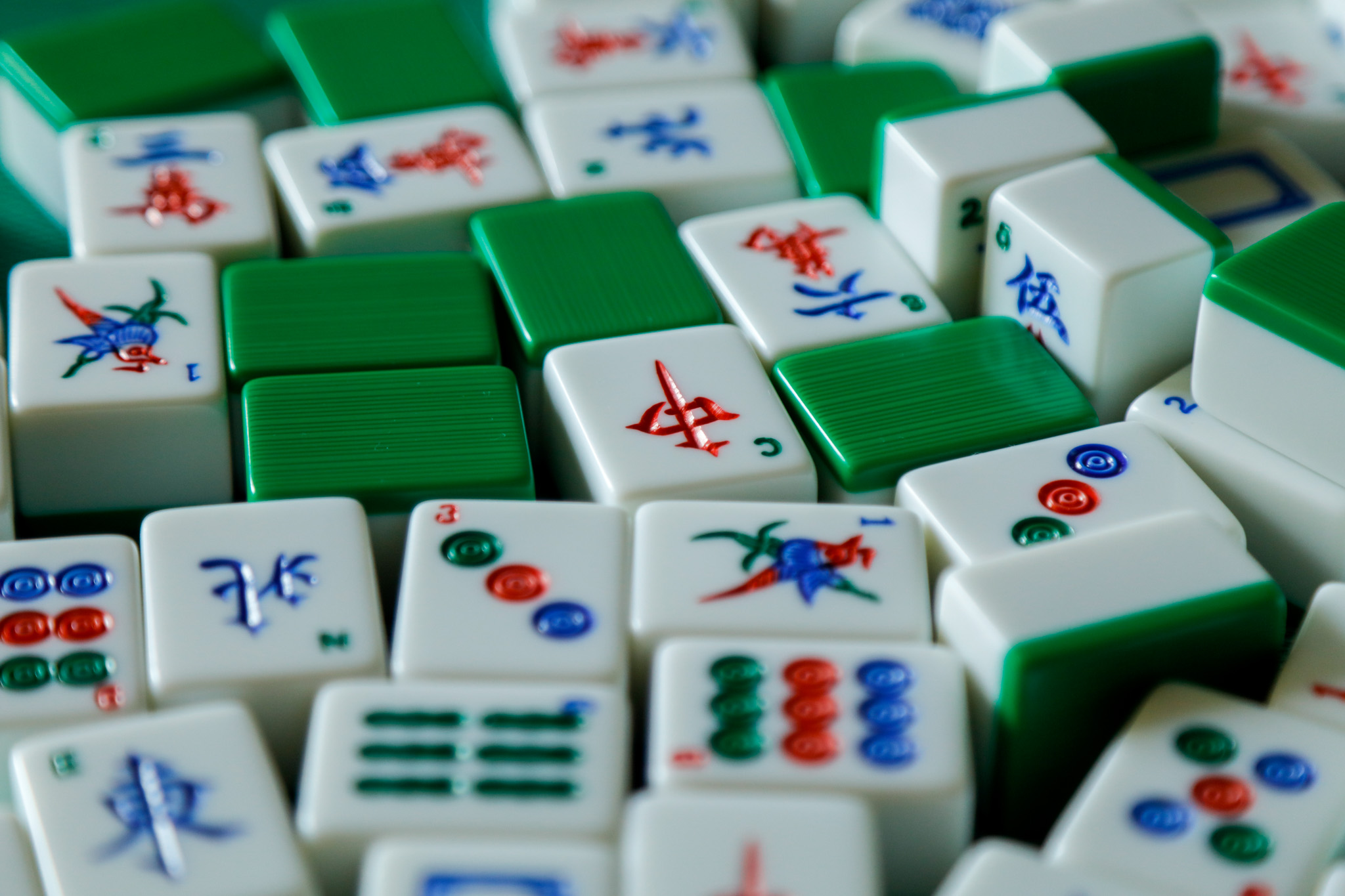Written by Jerry Feng
Edited by Patrick Ang and Aaron Medina
Photos by Jerry Feng
Mahjong. This Chinese tile-based game is one of the most common games played by Chinese people all over the world. Before I continue, since there’s probably someone out there who might have clicked on this link to learn the game, here are some simple rules to get you started.
First of all, the players will have to determine the 庄家 (zhuāng jiā), or the head player, by throwing dice. The one with the biggest number from the two dice combined will be the 庄, and the role of 庄 will be passed on following a counterclockwise rotation when the current one loses.
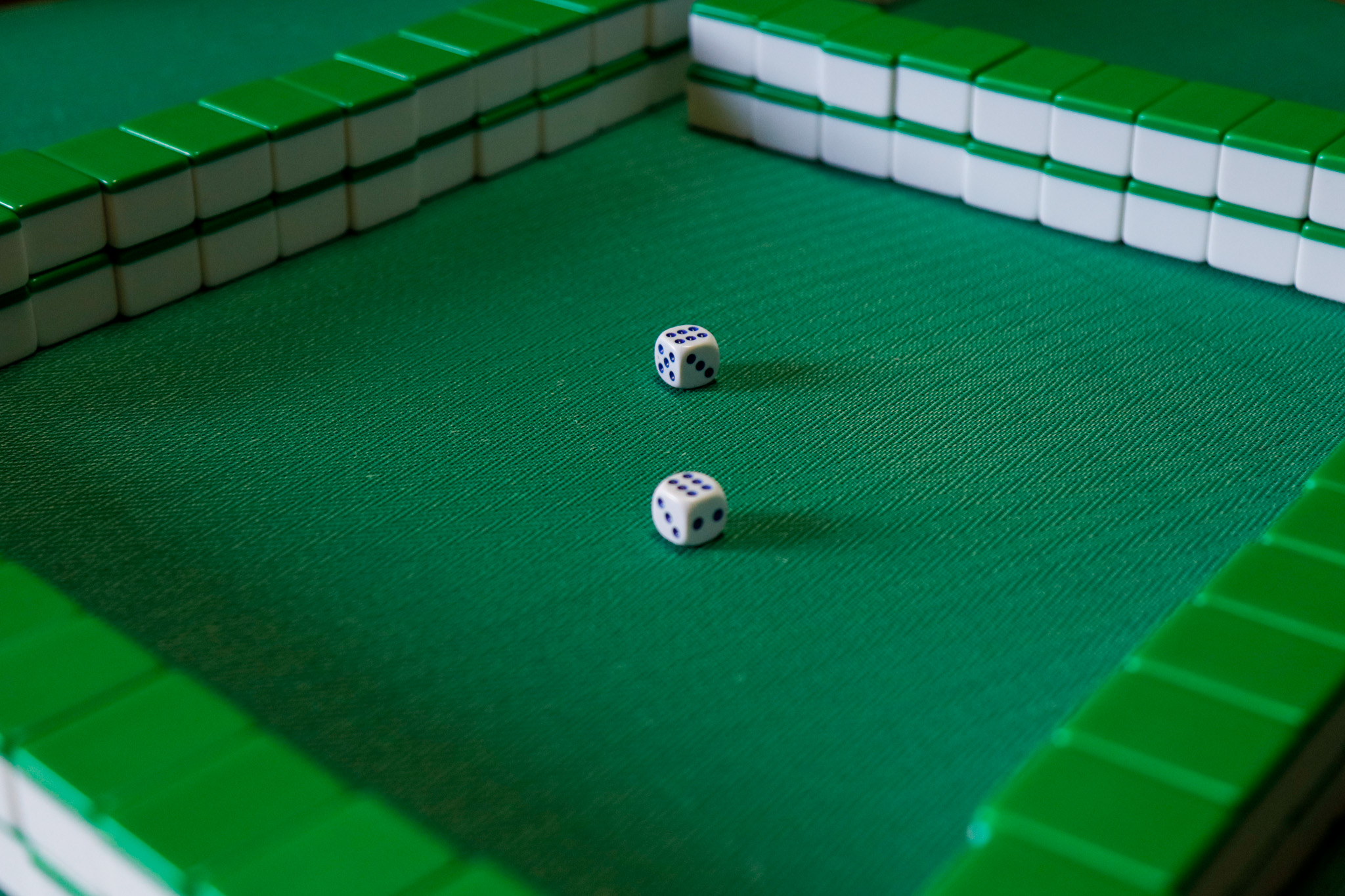
Each player has to stack 2 rows of 17 tiles to make a “wall”. The head player will then toss the dice to determine which tiles the players will get. For instance, if the dice land on 12, he or she will count 12 pairs from the right, and get from the 13th pair onwards. The players will then take turns in getting their tiles, each getting two pairs at a time. The tiles are taken from right to left while the players will take turns in the opposite direction. However, on the fourth turn, each player will only take 1 tile from the wall while the head takes 2.
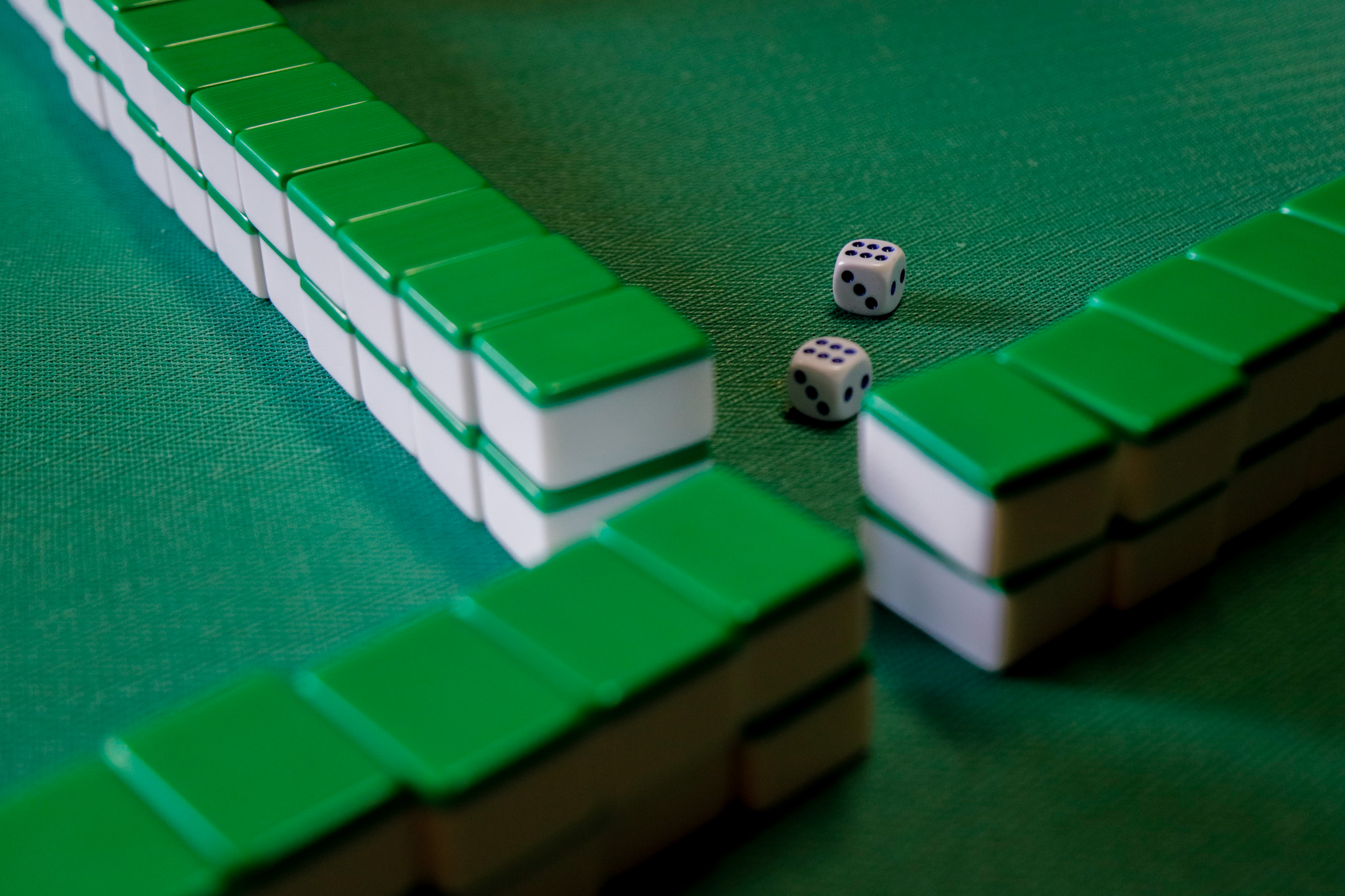
Before the game starts, everyone should have 13 tiles each while the head should have 14. The head will then discard 1 tile to begin the game. Each turn requires the players to draw a tile from the wall and discard another from their own decks, one that they think won’t help them win or is the most useless. To win, a player needs 1 pair of tiles with the same pattern while the remaining 12 tiles should be able to form 4 sets of 3’s that are either of the same pattern or consecutive numbers of the same suit.
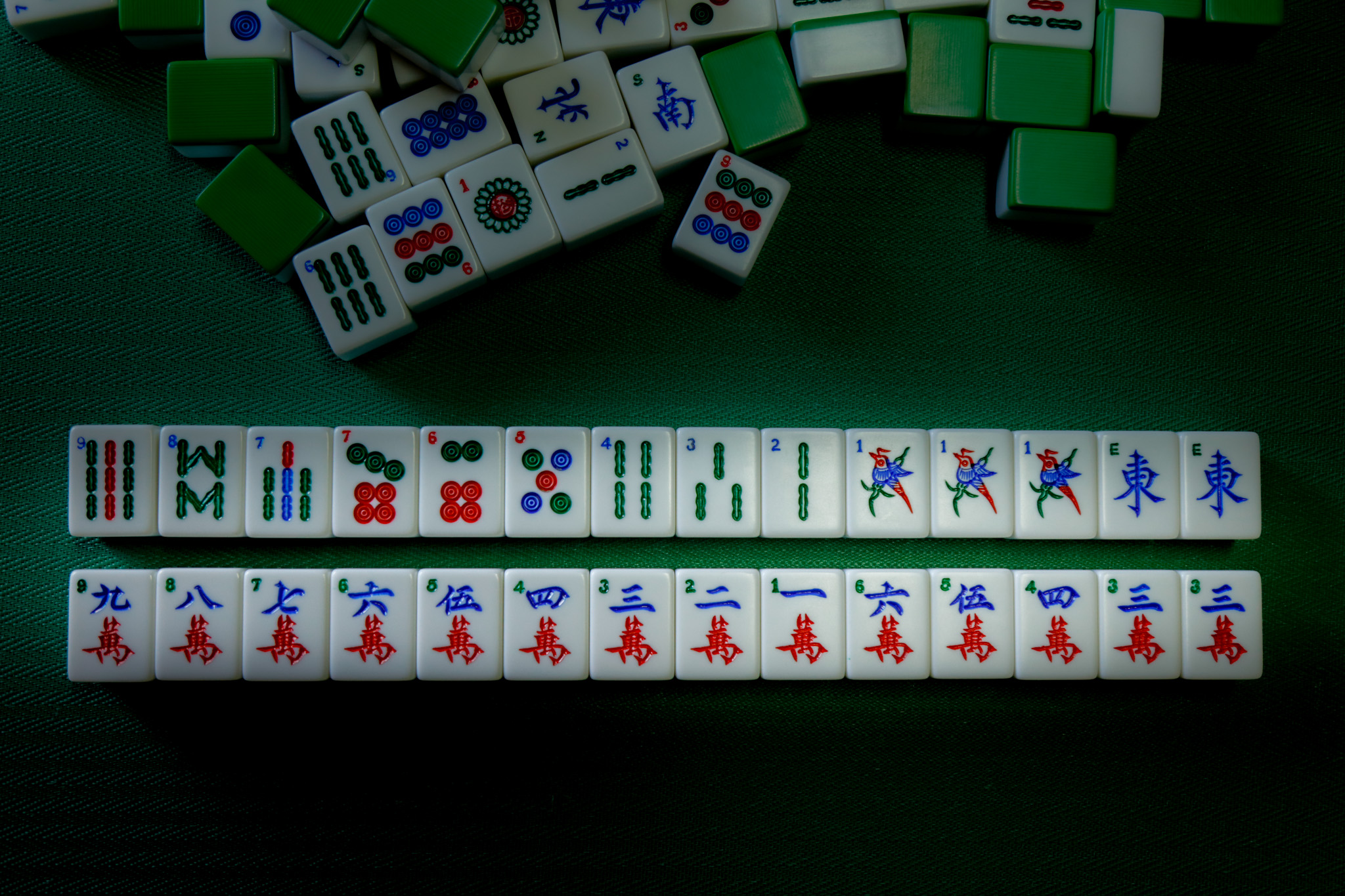
Of course, the rules above are only the basics, but those are essentially what you need to know. I still remember back when I was a child, the grown ups would always play mahjong in the New Year’s Eve gatherings as they waited for the clock to strike 12. I would always end up falling asleep while waiting with them so I never really learned how to play. When I entered college, I was surprised to see that my org mates in Ateneo Celadon also play mahjong, but at the same time I also felt embarrassed because I didn’t know how to play. That’s why I’d usually turn down their invitations since I just couldn’t get over my own insecurities.
However, having nothing much to do these days during the quarantine brought about by the coronavirus outbreak, I started playing mahjong with my family, and that gave me new perspectives I’ve never really thought about before. I found it very interesting when I realized how mahjong coincidentally, in a way, resembles the community’s situation right now. In mahjong, each player has his or her own corner and nobody reveals anything until someone wins. There’s a sense of isolation in mahjong, and yet we’re all connected together by the common space and rules that we share. Suddenly, mahjong became something that my family would play almost everyday. Suddenly, I felt like we were closer. The game I had rejected all my life ended up as the game that brought me closer to my family.
You see, mahjong is a manifestation of the Chinese culture. The tiles are symbols of well-wishes for the future. For example, the tiles with sticks are called 条 (tiáo). These tiles symbolize the copper money that people used in the past. There are also tiles with words like 中 (zhōng) which stands for 中狀元 (zhòng zhuàng yuán) or to get first place in the government examinations, and 發 (fā) which is short for 發财(fā cái) or to get rich.
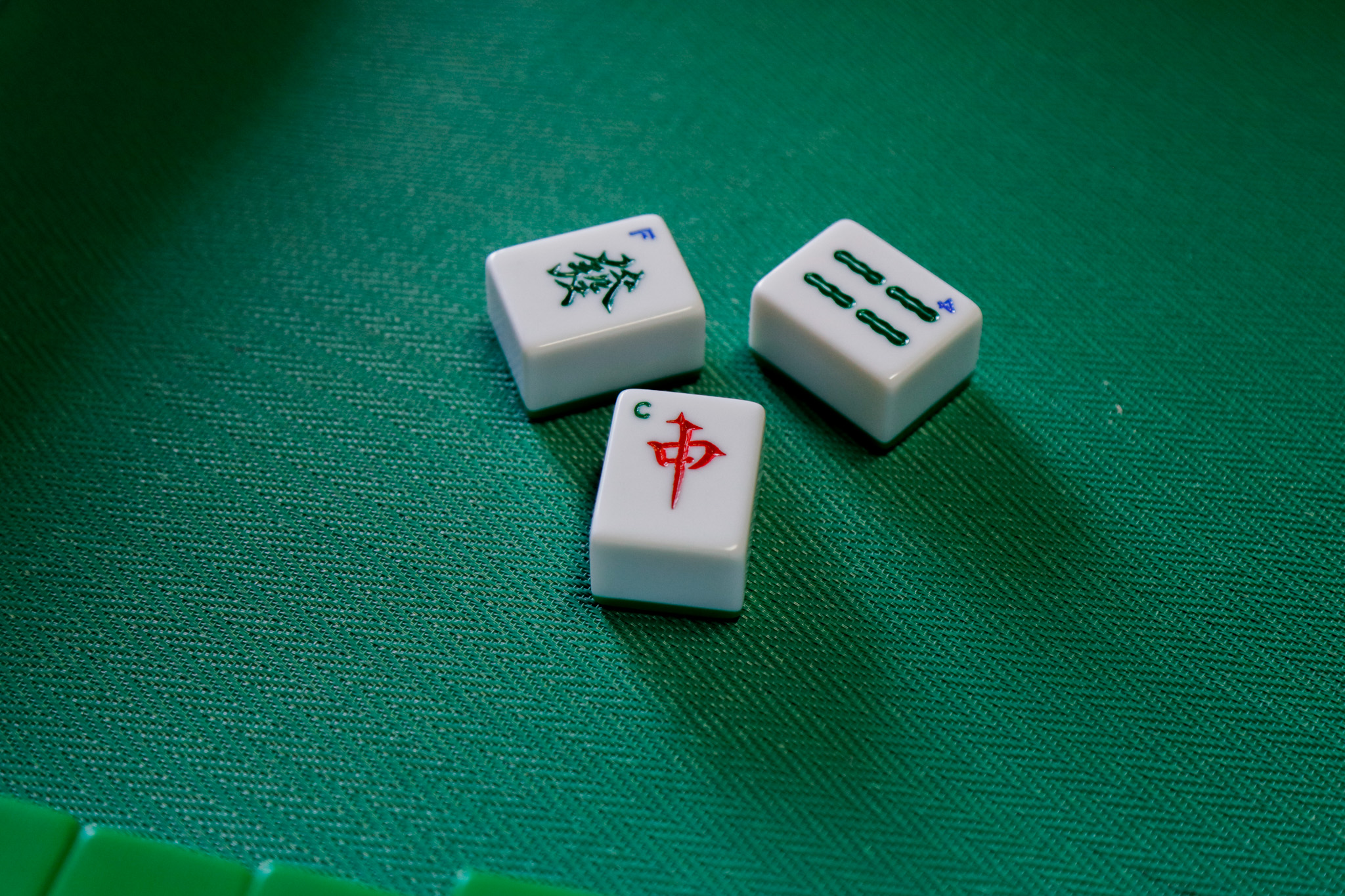
Unlike western poker, the value of mahjong lies not in the individual suits but rather in what the player is able to put together as a whole. The Chinese culture believes in how togetherness will bring about prosperity.
I’m not trying to tell you that playing mahjong is going to be as eye-opening for you as it was for me, nor am I guaranteeing that you’ll get something out of playing mahjong with your family. However, while we are separated from our social circles during this quarantine, perhaps it’s good to take a look again at the common, ordinary things that we often take for granted. Playing mahjong with my family during this quarantine made me see things in a new light. It reminded me of just how valuable the everyday experiences we have with friends and family really are.

